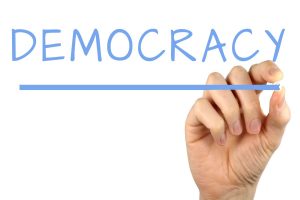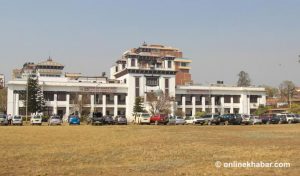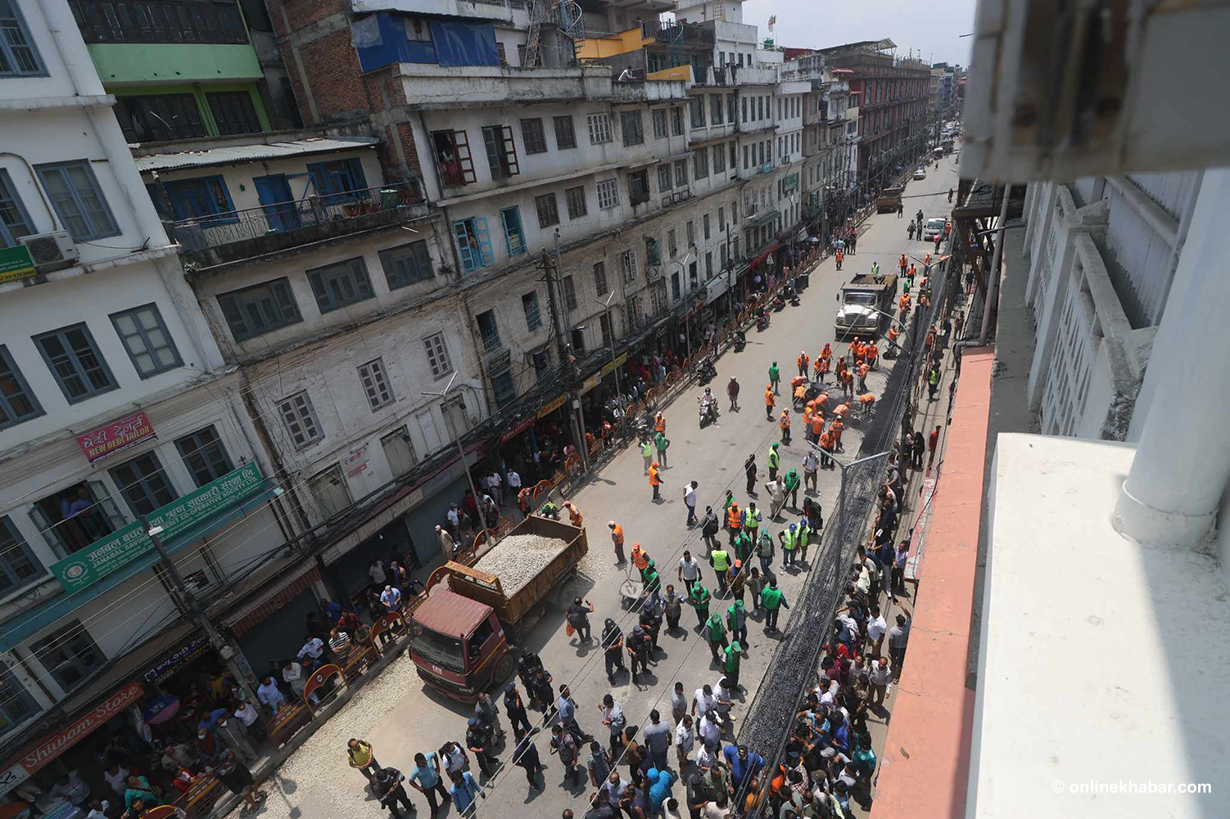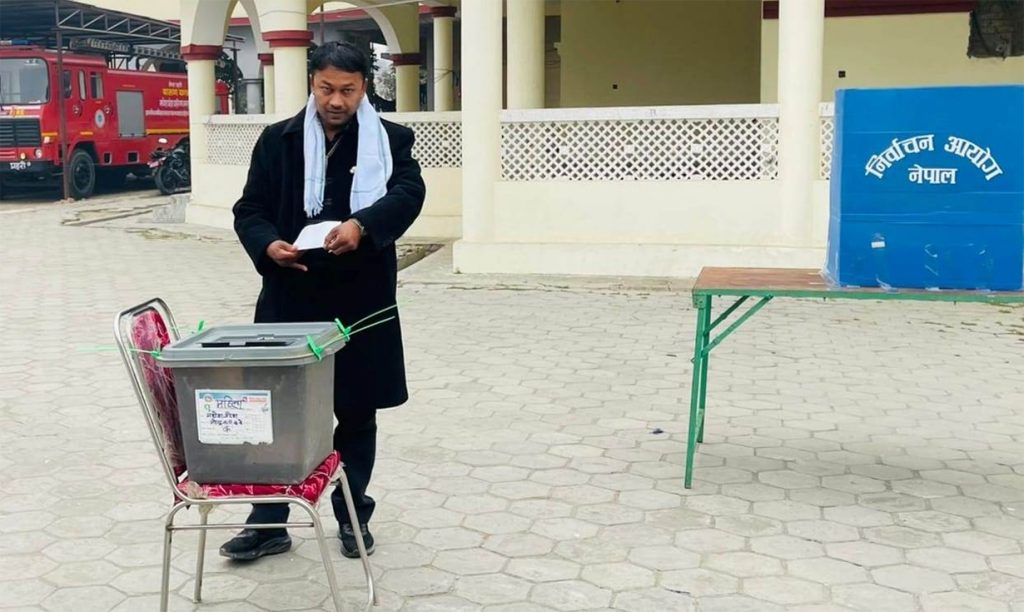
Famines kill millions of people in different countries in the world, but they don’t kill the rulers. According to Abraham Lincoln, democracy is a government of the people, by the people, and for the people. But in the present context, it has become “Democracy is a government of the leaders, by the leaders, and for the leaders.”
Democracy can potentially be beneficial for people living in poverty, but its impact depends on various factors such as the quality of governance, the level of inclusivity in decision-making processes, and the presence of strong institutions to safeguard the rights of all citizens, including the poor.
If democracies spend more money on public services than non-democracies, why do they fail to achieve better results? Perhaps democracies subsidise the budgets of middle- and upper-income groups who can afford to buy food and health services privately, but not the poor, how many studies claim to show that democracies do a better job than non-democracies of improving the welfare of the poor. These claims are consistent with leading political economy models, which suggest that democracies produce more public goods, and more income redistribution, than non-democracies.
The effectiveness of democracy

In democratic systems, there is typically more opportunity for marginalised groups, including the poor, to have a voice in government policies and decisions. They can participate in elections, advocate for their needs, and hold their leaders accountable through various democratic mechanisms such as free speech, freedom of assembly, and access to information. Moreover, democratic governments often implement social welfare programmes aimed at reducing poverty and inequality through policies such as education and health care reforms, social safety nets, and poverty alleviation programs. These measures can help improve the living conditions of the poor and provide them with better opportunities for upward mobility.
But in the present context, we can see that the effectiveness of democracy is in its declining phases. We can take the example of many nations like our country Nepal, since democracy has come in our country, the average economic growth is about 3 to 4 per cent p.a. and corruption has increased at rocket speed. Almost every political party’s senior leaders are convicted of corruption. Our neighbouring country opposition’s leaders are in jail for various corruption charges. China does not democratic government like our nation but also has a double-digit economic growth rate.
From the very first periodic plans we are trying to alleviate poverty but 16 plans are about to come still we are still trying to reduce the poverty rate. The constitutional crisis which we are seeing in the province government is another big issue for democracy. Unless there is no government, who will work for the people? The election is becoming so expensive that a normal person is not able to contest in the election.
Another back- side of democracy is speeding up ultra-nationalism and ultra-religion among the people. We can see, from 2014 when BJP came into power, ultra-nationalism and ultra-regionalism are at their peak. The poverty ratio is not reduced, but other things have increased. In the USA also Gun culture is deeply emphasising its roots. In our country due to an unstable government, there is an unstable policy due to which neither any direct nor indirect benefit is taken from the poor. In recent times government has ordered to pay a 10 per cent charge on Health insurance cards. We all know still 17 per cent total population of Nepal is residing below the poverty line, how do they pay that money? It is fine for those people who have money but what about those who have no money?
However, democracy is not a panacea, and its effectiveness in addressing poverty depends on how well it functions in practice. In many cases, democratic systems may face challenges such as corruption, political instability, and partisan gridlock, which can hinder the implementation of effective poverty alleviation measures.
The hindrance
In many democracies, wealthy individuals and powerful interest groups can wield disproportionate influence over the political process through campaign donations, lobbying, and other means. This can result in policies that prioritise the interests of the affluent elite over those of the poor. For example, in the United States, the influence of corporate donors and special interest groups has led to policies favouring tax cuts for the wealthy and deregulation, exacerbating income inequality and hindering efforts to address poverty.
Democratically elected leaders may prioritise short-term gains and populist policies aimed at garnering popular support, rather than implementing long-term strategies for poverty alleviation. This can lead to unsustainable welfare programs, fiscal mismanagement, and neglect of crucial investments in education, healthcare, and infrastructure. Countries like Venezuela have witnessed the detrimental effects of populist policies, which have contributed to economic instability, hyperinflation, and widespread poverty.
Democracy relies on consensus-building and compromise, but it can also be vulnerable to political polarisation and gridlock, particularly in deeply divided societies. This can hinder the enactment of meaningful reforms to address poverty and inequality, as partisan bickering and ideological differences stymie progress. The political paralysis witnessed in countries like Italy and Belgium underscores the challenges of governing effectively in a democratic system.
Despite democratic norms and institutions designed to uphold transparency and accountability, many democracies struggle with corruption and cronyism, which can divert resources away from poverty alleviation efforts. Elected officials may engage in patronage politics, allocating resources based on personal connections rather than merit or need. This perpetuates a cycle of poverty and undermines trust in government institutions. For instance, corruption scandals have plagued democracies like Brazil, and South Africa undermining public confidence and impeding efforts to combat poverty.
The need to recognise limitations of democracy
Democracies are often susceptible to external pressures, including economic globalisation and international financial institutions, which may prioritise market-oriented policies that benefit wealthy elites and multinational corporations at the expense of the poor. Structural adjustment programs imposed by organisations like the International Monetary Fund (IMF) have been criticised for exacerbating poverty and inequality in developing countries by promoting austerity measures and deregulation. while democracy holds the promise of empowerment and representation for all citizens, its efficacy in addressing poverty depends on a range of factors, including the strength of institutions, the integrity of elected officials, and the presence of checks and balances to prevent elite capture and abuse of power. Recognising the limitations of democracy is essential for designing more equitable and inclusive systems of governance that prioritise the needs of the poor and marginalised.
In the tapestry of nations, democracy emerges not only as a system of governance but also as a catalyst for social progress and poverty alleviation. While challenges persist and the realisation of democratic ideals may vary across contexts, the evidence overwhelmingly suggests that democracy is indeed good for the poor. By empowering marginalised communities, promoting inclusive governance, upholding the rule of law, and fostering economic opportunity, democracies offer a pathway towards a more equitable and prosperous future for all.
As we navigate the complexities of our global landscape, let us reaffirm our commitment to the principles of democracy and work tirelessly to build societies where the promise of justice, equality, and dignity is realised for every individual, especially the poor. While democracy has the potential to benefit the poor by providing them with greater political representation and access to social welfare programs, its impact depends on the specific context and the effectiveness of governance mechanisms in addressing the root causes of poverty.























